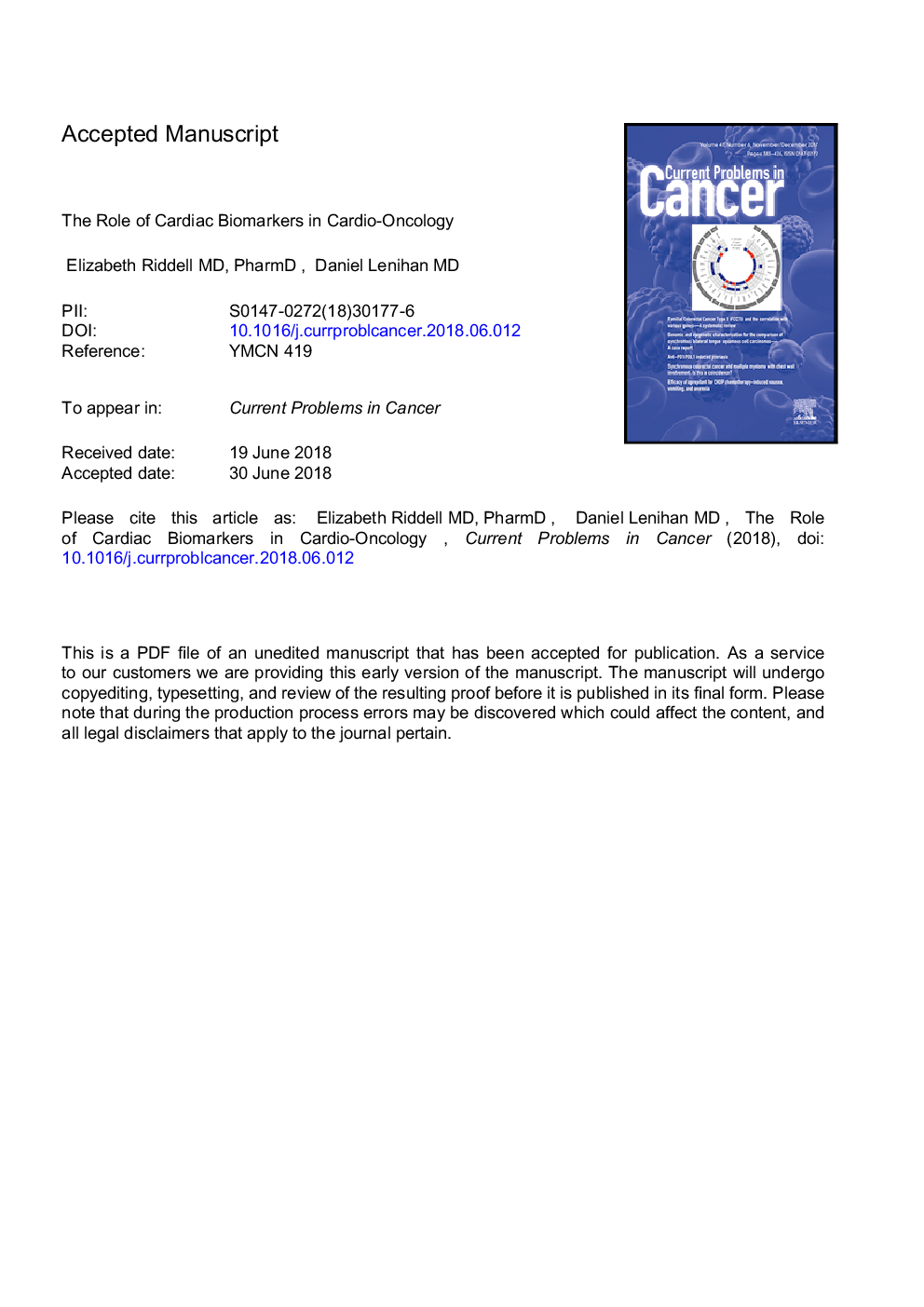| Article ID | Journal | Published Year | Pages | File Type |
|---|---|---|---|---|
| 11014307 | Current Problems in Cancer | 2018 | 24 Pages |
Abstract
Major advances in cancer therapy have resulted in an unprecedented improvement in patient survival for many cancers. Partially as a consequence of increased longevity, it has become evident that the cardiovascular system is frequently impacted by chemotherapy, radiation, and particularly certain targeted therapy. Cardiotoxicity continues to be a dose-limiting side effect of many chemotherapeutic agents including the anthracyclines. Early identification of patients at increased risk of cardiotoxicity or detecting cardiac injury at the earliest point will allow for initiation of cardio-protective strategies and hopefully prevent or reduce the need to modify life-saving cancer therapies. Biomarkers offer a potential solution to this clinical challenge because they may assist us in early identification of subclinical cardiac disease. In this review, we will summarize studies conducted evaluating the use of cardiac troponins (TnI, TnT) and natriuretic peptides, BNP and NT-proBNP. Other biomarkers for cardiotoxicity that have been at least preliminarily investigated, including myeloperoxidase and microRNAs, will be discussed as an exploratory tool for evidence of cardiac dysfunction during cancer treatment.
Related Topics
Health Sciences
Medicine and Dentistry
Hematology
Authors
Elizabeth MD, PharmD, Daniel MD,
